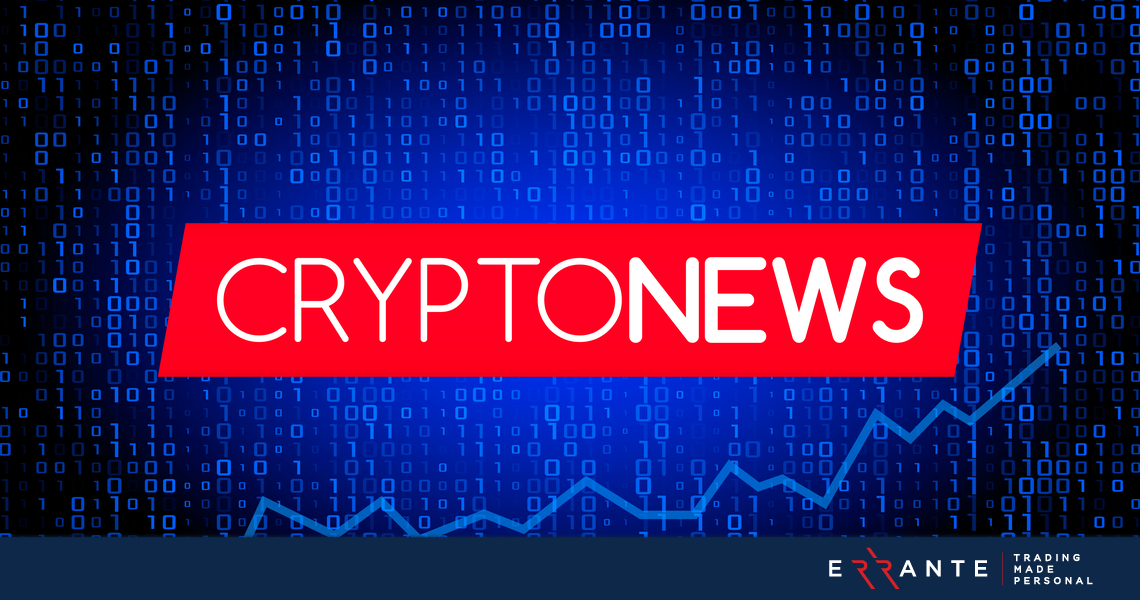How copyright News Can Effect Your copyright Trading Technique
How copyright News Can Effect Your copyright Trading Technique
Blog Article
Exploring the Impact of Regulative Changes and Technical Innovations on Today's Digital Currencies Headings
The crossway of regulative modifications and technical technologies is fundamentally altering the landscape of digital money, prompting a re-evaluation of their duty in the worldwide economic situation. Governing bodies, such as the SEC and CFTC, are proactively affecting how electronic assets are categorized, while new technologies are improving purchase effectiveness and security actions. This dual development increases critical concerns regarding the effects for market dynamics and financier self-confidence. As we explore these developments, the concern continues to be: how will these aspects form the future trajectory of electronic currencies in a progressively interconnected globe?
Current Regulatory Landscape
Following rapid innovations in electronic currencies, the existing regulatory landscape is progressing to address the intricacies and obstacles posed by these innovations. Federal governments and regulative bodies around the world are coming to grips with exactly how to efficiently supervise this blossoming market, which frequently goes beyond national boundaries.
Secret regulative approaches include the establishment of structures that define electronic money, making sure consumer protection and stopping illegal activities such as cash laundering and fraudulence. In the USA, firms like the Stocks and Exchange Compensation (SEC) and the Commodity Futures Trading Compensation (CFTC) are proactively involving in discussions to clarify the category of different digital possessions and their regulatory implications.
Similarly, the European Union is advancing its Markets in copyright-Assets (MiCA) policy, which aims to develop a cohesive governing environment throughout participant states. Nations like China have actually gone with stricter steps, including straight-out bans on particular copyright tasks.
As this regulative landscape continues to create, it will be important for stakeholders, including organizations and customers, to stay enlightened and adapt to the altering atmosphere to minimize risks while taking advantage of possibilities within the digital money sphere.
Secret Technological Innovations
Numerous technical innovations are improving the landscape of electronic currencies, dramatically enhancing their capability and protection. One of one of the most pivotal improvements is the growth of blockchain technology, which supplies a decentralized journal that guarantees openness and immutability of purchases. copyright news. This technology not only mitigates the risk of fraudulence but likewise enables real-time deal confirmation, promoting individual depend on
Additionally, the emergence of clever contracts has actually transformed just how contracts are performed within electronic money ecosystems. These self-executing contracts promote automatic transactions, removing intermediaries and decreasing prices related to conventional contract enforcement. In addition, developments in cryptographic strategies enhance the safety and security of digital purses, securing individuals' possessions from prospective cyber risks.
Another noteworthy technology is the integration of expert system in purchase surveillance and scams discovery, allowing platforms to recognize suspicious activities immediately. In addition, the intro of Layer 2 scaling services, such as the Lightning Network, addresses scalability issues, permitting for faster and less costly transactions on networks like Bitcoin.

Influence On Market Dynamics
Technological advancements in electronic money have not just enhanced performance and protection but have also substantially modified market dynamics. The introduction of blockchain innovation has actually raised openness and minimized purchase prices, resulting in greater effectiveness in trading and investment. This has index encouraged a more diverse range of participants, from retail financiers to institutional gamers, to involve with digital currencies, thus enhancing market liquidity.
Moreover, the development of decentralized finance (DeFi) platforms has interfered with conventional economic systems, supplying individuals with alternate avenues for lending, borrowing, and trading. This shift has fostered an affordable setting where standard banks are forced to innovate or risk obsolescence (copyright news). With the surge of stablecoins, which supply cost security among volatility, investors can now execute transactions with reduced threat, more influencing market behavior
In addition, the combination of expert system and artificial intelligence in trading techniques allows for more sophisticated market evaluation and predictive modeling. As an outcome, financiers are better outfitted to react to market fluctuations, producing a more vibrant trading atmosphere. Collectively, these technologies are reshaping the landscape of electronic currencies, causing a more interconnected, affordable, and effective market.

Global Point Of Views on Law
Regulatory techniques to digital currencies vary substantially around the world, often reflecting differing economic priorities, social attitudes toward innovation, additional reading and levels of technical fostering. In the USA, governing bodies such as the SEC and CFTC face specifying the lawful status of cryptocurrencies, concentrating on investor protection and market honesty. At the same time, the European Union is progressing comprehensive regulative structures like the Markets in copyright-Assets (MiCA) proposal, intending to develop a unified approach that cultivates technology while guaranteeing customer security.
On the other hand, nations like China have actually embraced a straight-out ban on cryptocurrencies, focusing on monetary control and monetary stability over technology. On the other hand, nations such as El Salvador have welcomed Bitcoin as lawful tender, showcasing a bold dedication to financial incorporation and economic innovation.
Developing countries usually locate themselves browsing a complicated landscape, stabilizing the need for regulation with the prospective advantages of electronic currencies in driving financial development. In general, the international governing environment remains fragmented, with ongoing discussions and modifications as federal governments look for to strike an equilibrium between fostering advancement and mitigating risks connected with digital money. This dynamic landscape emphasizes the need for ongoing worldwide teamwork and discussion among regulatory authorities.
Future Trends in Digital Currencies
As regulative structures progress, the landscape of electronic currencies is poised for considerable transformation. Emerging fads show a merging of regulatory clearness and technical advancement, which will form the future of electronic currencies. Central Financial Institution Digital Currencies (CBDCs) are prepared for to acquire grip as federal governments explore their prospective to improve monetary policy efficiency and monetary addition.
Simultaneously, decentralized financing (DeFi) systems are expected to challenge typical financial systems, supplying cutting-edge monetary services that that site operate without intermediaries. This change might cause a re-evaluation of existing guidelines to accommodate the distinct characteristics of DeFi while guaranteeing customer security and systemic security.
Furthermore, the assimilation of man-made knowledge and device discovering in copyright trading and threat assessment will redefine investment techniques and market characteristics. As electronic currencies become significantly traditional, problems such as cybersecurity risks and governing conformity will certainly require durable remedies.
Finally, public assumption and fostering will play a crucial function in establishing the trajectory of electronic currencies. Increased awareness and education relating to the benefits and dangers linked with digital currencies will drive acceptance, inevitably affecting the governing landscape and market growths in the years to find.
Conclusion
Report this page